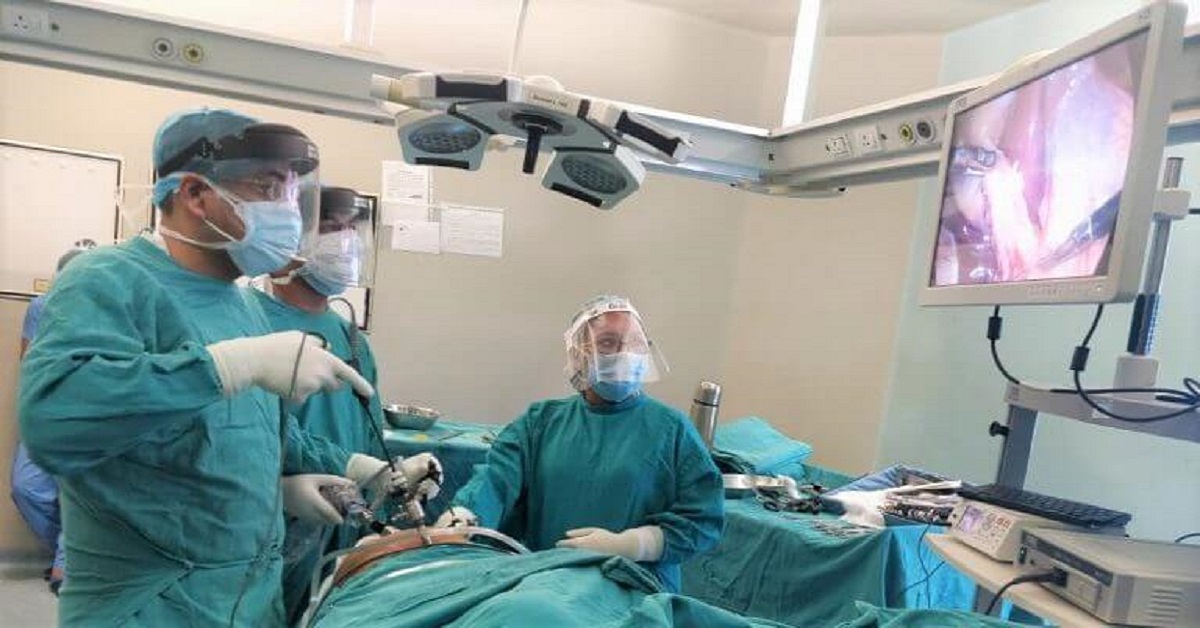Allergy & Sleep Study Department
Allergies, also known as allergic diseases, are a number of conditions caused by hypersensitivity of the immune system to something in the environment that usually causes little or no problem in most people. These diseases include hay fever, food allergies, atopic dermatitis, allergic asthma, and anaphylaxis. Symptoms may include red eyes, an itchy rash, sneezing, a runny nose, shortness of breath, or swelling. Food intolerances and food poisoning are separate conditions. Common allergens include dust mites, pollen and certain food. Metals and other substances may also cause problems. Food, insect stings, and medications are common causes of severe reactions.
Their development is due to both genetic and environmental factors. The underlying mechanism involves immunoglobulin E antibodies (IgE), part of the body’s immune system, binding to an allergen and then to a receptor on mast cells or basophils where it triggers the release of inflammatory chemicals such as histamine. Diagnosis is typically based on a person’s medical history. Further testing of the skin or blood may be useful in certain cases. Positive tests, however, may not mean there is a significant allergy to the substance in question. Early exposure to potential allergens may be protective. Treatments for allergies include avoiding known allergens and the use of medications such as steroids and antihistamines. In severe reactions injectable adrenaline (epinephrine) is recommended. Allergen immunotherapy, which gradually exposes people to larger and larger amounts of allergen, is useful for some types of allergies such as hay fever and reactions to insect bites. Its use in food allergies is unclear.
Sleep Study
A sleep study or polysomonography is gold standard diagnostic tool for sleep disordered breathing. Polysomnography records your brain waves, the oxygen level in your blood, heart rate and breathing, as well as eye and leg movements during the study.
Sleep apnea is a potentially serious sleep disorder in which breathing repeatedly stops and starts. If you snore loudly and feel tired even after a full night’s sleep, you might have sleep apnea.

Facility
Apart from the clinical departments Swastya Hospital has many critical and crucial supportive facilities. These insure prompt and quality patient care.
Our Core Values
We, the members of the Swasthya Hospitals, hold the following values to be the foundation of our identity. We shall endeavour to think and act at all times in accordance with these values. To provide world standard healthcare solutions to the community by leveraging advances in medical research science and technology and adoption of best management practices.
We are Patient Centric. We put the needs of the patient first in all our actions.
We give our best in all that we undertake and are committed to deliver on time.
We remain modest and humble in our achievements. Our work speaks for itself.
We seek value and maximize our gains by using our resources judiciously.
Recent News
Explore Our Latest News Updates
-
How Can Obesity Surgery Change Your Life?
Today obesity is quite a common problem that is affecting a lot of people. As it is a long term health problem therefore needs to be treated properly or else the consequences can be really bad. Obesity not only affects your other body organs but poses risk to your heart as well. That is why it becomes all the more necessary that you try ways to lose your weight. Only then it is possible to get over obesity. There are some people who despite of doing everything are not able
-
5 Laparoscopic Surgery Trends to Keep an Eye on
The modern technique for operating on many life-threatening diseases has never been the same; processes, techniques, and instruments have all changed over the years. These ever-changing trends have always had an impact on the popularity of less invasive surgical procedures, and this article will discuss five of them today. Trends in Laparoscopy Age-group of female patients: - The age-group of female patients who were treated for infertility was between 25 and 45.Diagnosis and operation: - Earlier when laparoscopy was just a newly found operation method, people used to only get diagnosed with the
-
Why Should You See a Gastroenterologist for Digestive Problems?
Your digestive system plays a very important role to provide your body with the energy that it needs. Hence it is vital that your digestive system always remains healthy and free from any kind of complications. When your digestive organs work efficiently, you can experience the best of health and be in a positive mood. Hence if you experience any discomfort or abnormalities with your body’s digestive system, it is advisable that you immediately get in touch with a gastroenterology doctor. Gastroenterologists are medical professionals that have the talent, knowledge, and




